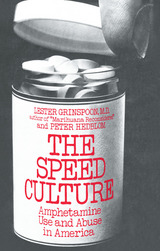
Four years in the making, this entirely revised edition of a classic text provides a lucid and erudite review of the state of psychiatry today. Since the publication of the last edition in 1988, remarkable advances have been made in laboratory and clinical psychiatric research; the fourth edition of the Diagnostic and Statistical Manual of Mental Disorders (DSM-IV) has been published; managed care has radically altered the provision of all medical care; and the profession of psychiatry has come to a sophisticated new understanding of the interplay between psychiatric knowledge and issues in the larger society.
All these changes are reflected in the new text. Of particular interest are the masterful and lucid reviews of current knowledge in the neurobiology of mental disorders, in the section on brain and behavior. The section on psychopathology clarifies newly emerging diagnostic categories and offers new insight into addictions, anxiety disorders, and disorders of cognition.
Like its predecessors, The Harvard Guide To Psychiatry focuses throughout on the relationship between the physician and the patient. Its unspoken motto is that the art of psychiatry is as important as the science. For this recognition of what is relevant clinically as well as technically, this book will be an essential reference and support for both the new and the experienced psychiatrist.
This new edition includes up-to-date discussions of:DSM-IVManaged careImprovements in neuroimagingThe increased use of psychoactive drugsRecent advances in molecular biologyResearch on the biology of schizophrenia, depression, anxiety, and addictive disorders


Speed kills—this fading bumper-sticker pun recalls the romance between the counterculture and amphetamines. But America's real involvement with "speed" began far earlier, and has endured in spite of the disasters of counterculture experimentation.
Amphetamines continue to be respectable drugs for all classes and all ages—even, increasingly, schoolchildren. Unlike alcohol, marihuana, opium, and cocaine—the other "recreational" drugs—amphetamine and its relatives have no natural source or long cultural tradition. They are entirely a product of modern laboratories. Available for less than forty years, during most of their history they have borne the stamp of official scientific and medical approval. Their deleterious effects—including severe habituation—have only slowly been recognized, and today there is still a sizable constituency favoring their use in so-called hyperkinetic children as well as in obese and depressed adults.
Lester Grinspoon, author of Marihuana Reconsidered, and Peter Hedblom have taken a hard look at the amphetamines and their effects on man. They explore the social forces that favor use of these substances: drug-company profits, medical convenience, and user acceptance. And they analyze evidence showing that amphetamines are dangerous and unnecessary drugs, perhaps even when prescribed by physicians. At a time when federal action against the illicit use of amphetamines is becoming more and more stringent, Grinspoon and Hedblom find that pressures to expand their "legitimate" use remain intense, however questionable the results. They illustrate explicit efforts to expand the use of such drugs through advertisements implying "that human life itself is a drug-deficiency disease." And they explore the more pervasive and subtler cultural pressures for conformity to an impossible ideal of physical and intellectual vigor, industriousness, and efficiency—an ideal that amphetamines once seemed to put in the reach of every man.
READERS
Browse our collection.
PUBLISHERS
See BiblioVault's publisher services.
STUDENT SERVICES
Files for college accessibility offices.
UChicago Accessibility Resources
home | accessibility | search | about | contact us
BiblioVault ® 2001 - 2024
The University of Chicago Press









